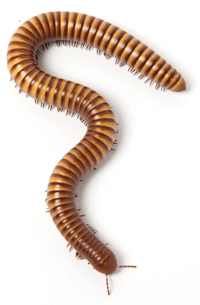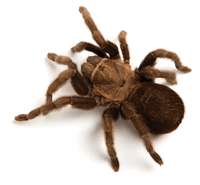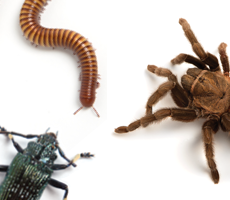- April 11, 2017
- By Liam Farrell
If you’ve wondered in the past few weeks whether to bundle up in a parka or break out the sunscreen, you were hardly alone—the weather whiplash was bugging the bugs, too.
Entomology Professor Mike Raupp, a popular insect expert who is regularly interviewed by media outlets such as WTOP and NPR, sees a mixed picture for this year’s batch of creepy-crawlies, with fewer invasive pests but likely more mosquitoes.
 It’s still unclear, he says, if the recent wild fluctuations—from February’s record-setting warmth to a March with ice and snow—hurt insects like kudzu and harlequin bugs, which have encroached farther north as the climate warms.
It’s still unclear, he says, if the recent wild fluctuations—from February’s record-setting warmth to a March with ice and snow—hurt insects like kudzu and harlequin bugs, which have encroached farther north as the climate warms.
“The plants thought it was spring, the bugs thought it was spring. We depend on winter to basically put a beatdown on Southern species,” he says. “We’re kind of back on track for a more normal year. That cold snap might have been enough.”
By “normal,” however, he means a new normal. March was still the 10th consecutive warmer-than-average month in the Washington, D.C., area, and the wild swings in temperature could also wreak havoc on bees and pollinating insects. They rely on the plants that prematurely bloomed and then suffered in the later freeze.
“A lot of our plants got fooled. We really don’t know what this means for our pollinators,” he says. “It’s not just the heat. It’s the variation.”
One piece of good news is that the brown marmorated stink bug, a much decried invader, has taken a hit due to local parasites. Raupp compares the situation to H.G. Wells’ “War of the Worlds,” wherein powerful aliens are done in by a lack of immunity to Earth-bound microbes.
But he anticipates a bad year for us in terms of mosquitoes and the diseases they carry, such as West Nile and Zika virus. The southern pine beetle, which kills trees, has started popping up as far north as New York state, and drought in New England has fostered a record outbreak of gypsy moths, as the fungus that contained their population lacked needed moisture.
 In a warming world, Raupp says, “we’re simply going to have more of many of the bugs that make us itch and scratch and eat our crops.”
In a warming world, Raupp says, “we’re simply going to have more of many of the bugs that make us itch and scratch and eat our crops.”
So when it finally is time to head for the beach, make sure you take the bug spray.
Interested in insects? Check out Raupp’s blog at bugoftheweek.com.
